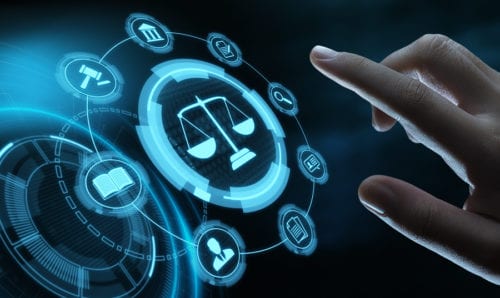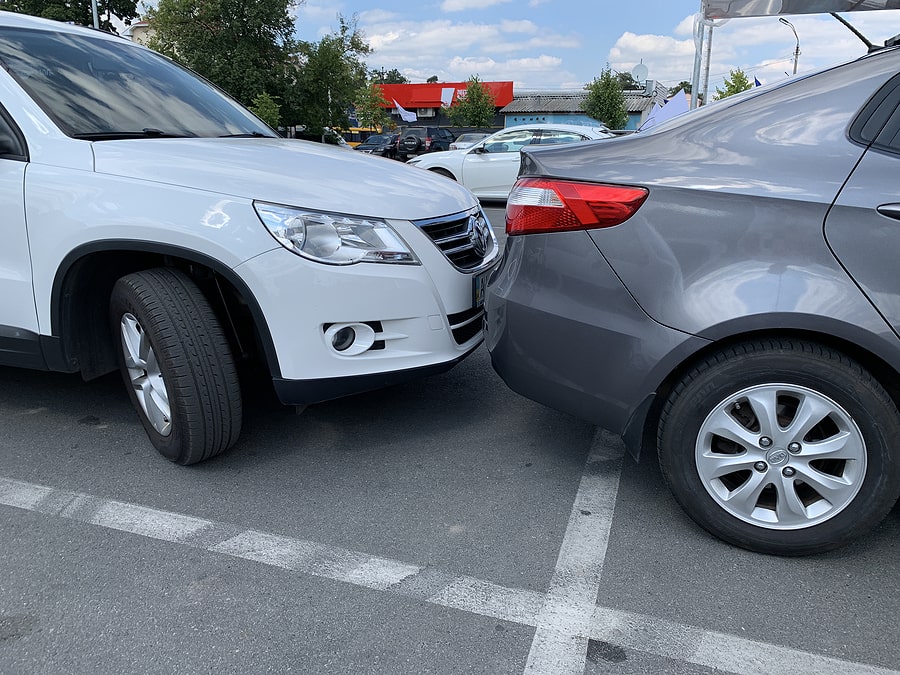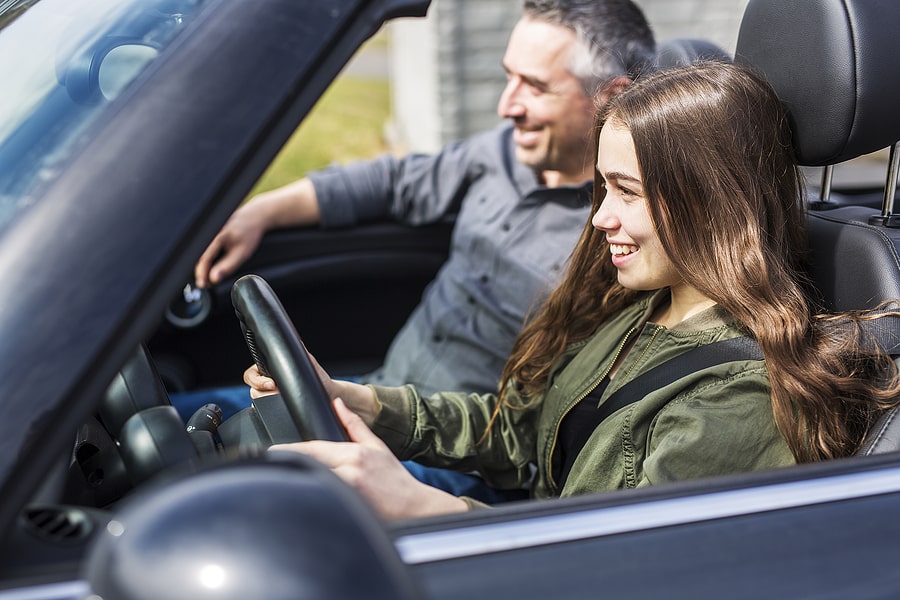Nothing is safer than riding in a Lyft, right? Wrong! Throughout Texas, people rely on Lyft as a safe mode of transportation to and from work or social functions. Whether you’re headed to Katy’s historic downtown, Katy Mills Mall, or all the way to downtown Houston, rideshares provide a convenient and popular way to get from your home to your destination, and back again.
With rideshares, however, strangers provide transportation, leaving you at the mercy of a rideshare company to properly vet the drivers that it contracts to transport passengers. Additionally, rideshare services are provided on roadways filled with other drivers who are often distracted, impaired, or otherwise unprepared to drive safely.
If you sustained an injury in a Lyft accident, the Katy Lyft accident attorneys at Stewart J. Guss, Injury Accident Lawyers can help you understand your legal options for obtaining compensation. We are a national law firm based in Houston with multiple offices around the country. We also work with affiliate law firms in most states that share our focus and dedication to excellence. No matter where you are located, we may be able to help you, so call or contact us now. We are open, for free, 24 hours a day, seven days a week, at 800-898-4877, or you may contact us now by clicking here to submit your case for review.
The Hidden Dangers of Taking a Lyft
Since the start of this transportation trend, rideshares have received praise in certain circles as the answer to traffic congestion and a way to keep drunk drivers off the road; however, no one could have imagined the hazards that rideshares would create. According to a study conducted by the University of Chicago and Rice University, cities providing rideshare service have seen a 2 to 3 percent increase in traffic-related deaths in the decade since the rideshare phenomenon began.
The study attributed the traffic accident increase to the fact that rideshare drivers spend, on average, 40 to 60 percent of the time that they are logged into the rideshare app and available to accept a ride deadheading, which is the act of driving around to areas of predicted high activity in hopes of finding a passenger.
While traffic accidents are the biggest hazard facing Lyft passengers, they also face a risk of becoming the victim of criminal activity during the ride. Read on for more information about both of these hazards.
Car/Pedestrian Accidents
Car accidents, including accidents involving pedestrians, can happen in different ways, each producing a potentially different source of liability.
Some of the ways that car and pedestrian accidents involving a Lyft car can occur include:
- The Lyft driver negligently causes an accident while you are a passenger in the Lyft car.
- Another driver negligently causes an accident with the Lyft car while you are riding as a passenger.
- You are a Lyft driver who was injured in an accident either while transporting a passenger, while waiting for a passenger, or while using your vehicle for personal reasons.
- The Lyft driver has an accident that injures you while you are a pedestrian or bicyclist.
- The Lyft driver causes an accident that results in your injuries while you are a driver or a passenger of another car.
Crime
In 2019, 14 women filed a lawsuit against Lyft, accusing the rideshare company of failing to protect its passengers from sexual assault. This was just one of many lawsuits filed against the company in recent years, and one of several that involved passengers being sexually assaulted by their Lyft drivers. Who can forget the South Carolina case in which a university student got into what she believed was her rideshare driver’s car, only to suffer abduction and murder
If you get in a Lyft car, you have no idea of who your driver is, and you count on the company to take care when deciding who to transport its passengers. Rideshare companies, however, regularly dodge that responsibility.
Common Causes of Lyft Accidents
There are a few common causes of Lyft accidents that only apply to rideshares, and many more that are the same causes of accidents involving other types of vehicles.
Distracted Driving
All drivers are prone to distractions, but Lyft drivers have the added hazard of having to look at and respond to trip requests in the app, often while on the roadway. Repeated lawsuits against the rideshare company have failed because the company has removed much of the vicarious liability for its drivers by classifying them as independent contractors. Distracted driving causes the deaths of more than 3,000 people on U.S. roads each year.
There are three types of driving distractions:
- Manual distractions, which cause the driver to take his or her hands from the wheel.
- Visual distractions, which cause the driver to take his or her eyes from the roadway.
- Cognitive distractions, which draw the driver’s focus away from the task of safe driving.
Alcohol Impairment
An alcohol-impaired Lyft driver? Aren’t rideshare drivers supposed to provide a sober alternative for individuals who have overindulged during a night out? Yes, but having an alcohol-impaired Lyft driver is possible. Even if your Lyft driver is sober, that doesn’t mean that everyone else on the roadway is. Alcohol impairment is a major cause of motor vehicle accidents, resulting in more than 10,000 deaths a year and hundreds of thousands of injuries.
Failure to Yield and Other Driving Errors
Lyft drivers are often required to drive in areas that they are not familiar with, relying on the app’s GPS for directions. Driving on unfamiliar roads, however, has an anxiety-producing effect on some drivers that causes them to make errors. Those errors can include wrong-way driving, failure to yield, or turning around unsafely after missing a turn. Other drivers can commit these same errors, increasing the risk of an accident.
Aggressive Driving
Aggressive driving includes several different risky driving behaviors that are generally exhibited when a driver attempts to navigate traffic congestion. If your Lyft driver or another driver on the roadway is displaying these behaviors, it may increase your risk of becoming injured in a crash.
Some common types of aggressive driving behaviors include:
- Speeding. Speeding is one of the most common factors in motor vehicle accidents, including those involving Lyft vehicles. The dangers of speeding include a reduction in the control that a driver has over his or her vehicle; a reduction in the time that the driver has to perceive a hazard on the roadway and react to it by activating the brakes; an increase in the distance traveled by the car from the time the driver puts on the brakes until the brakes successfully pull the weight of the vehicle to a safe stop; a reduction in the effectiveness of safety equipment, such as seat belts and airbags; and an increase in the severity of the crash.
- Tailgating. Following too closely is the leading cause of rear-end collisions. While rear-end collisions are often treated as minor events and have earned the nickname “whiplash crash” to refer to a common injury suffered in this type of accident, it is important to remember that this type of accident leads to around 2,000 deaths a year and nearly a million injuries.
- Improper lane changes: A safe lane change involves proper signaling, as well as inspection of your rearview mirror, side view mirrors, and an over-the-shoulder look at blind spots to ensure that the travel lane into which you are moving is clear. Aggressive drivers often skip a few steps in the lane change process, failing to ensure that the travel lane is clear and failing to signal one’s driving intentions to other drivers. This increases the likelihood of an accident, including a rear-end accident resulting from cutting into the lane when there is not a sufficient gap in traffic or a sideswipe accident caused by merging into another vehicle.
- Red-light running: Red light infractions are common in traffic congestion, as drivers attempt to beat the light. The issue with this is that it can cause a dangerous intersection collision, such as a T-bone accident—also commonly known as a broadside accident.
Drowsy Driving
Drowsy driving is another major factor in collisions, with one out of every 25 drivers reporting falling asleep while driving each month. Driving fatigue is dangerous because it mimics the deficits to the skills needed for safe driving that result from alcohol impairment. Some of the hazards created by drowsy drivers include a slowed reaction time if they need to brake or steer suddenly, less ability to pay attention to the roadway, and less ability to make good decisions.
Anyone may drive while drowsy, particularly individuals with a new baby at home or who are undergoing a major life change that has resulted in a loss of sleep. Drowsy driving is most common in night shift workers and long-haul truck drivers who work during the nighttime hours. This is because of the circadian rhythm, which is the body’s instinctive need to sleep during the nighttime hours. For Lyft drivers who work during late-night hours, fatigued driving can become an issue that affects the safety of the driver and his or her vehicle, as well as passengers and others on the roadway. The bottom line: if you feel sleepy, don’t drive!
Injuries Caused by Lyft Accidents
Motor vehicle accidents are a major cause of accidental injury and death in the U.S. As with any motor vehicle accident, Lyft accidents are capable of producing severe injuries.
Some common injuries incurred by Lyft passengers and others as a result of a motor vehicle accident involving a rideshare vehicle include:
- Traumatic brain injuries (TBIs): A TBI causes damage to the brain through a sudden jolt or blow to the head and body. Although the brain is among the most important organs in the body, responsible for controlling all of the body’s functions and involuntary responses, the brain has only a limited ability to heal itself from injury. Thus, the injury will likely cause permanent deficits, such as memory loss, the inability to control one’s behavior or emotions, the inability to move in a balanced, coordinated manner, and difficulty speaking or understanding spoken language.
- Spinal cord injuries (SCIs): The spinal cord is a bundle of nerves that extends from the base of the skull to the waist and is protected by the bony vertebrae of the spine. The spinal cord and the brain make up the central nervous system, with the spinal cord acting as a messenger between the brain and the rest of the body. Like brain injuries, spinal cord injuries generally result in permanent damage. This damage often consists of a loss of function and sensation below the injury site, known as paralysis.
- Bone fractures, which increase the risk of certain complications, such as chronic pain or loss of range of motion in the limb.
- Severe burns, which can result in a life-threatening loss of fluids, infection, and significant scarring.
- Soft tissue injuries, which occasionally result in chronic pain and can result in temporary or permanent effects on the use and function of a limb.
- Deep lacerations and abrasions, which can result in permanent scarring as well as a loss of sensation due to nerve damage.
Frequently Asked Questions About Pursuing Compensation After a Lyft Accident
Arranging for a stranger to drive you through Katy on an app is a popular way to get from one part of town to another. If that journey involves an accident, however, many Lyft passengers and others on the roadway are left wondering how to pay for the expenses of their injury. Here are some of the questions that our Katy clients ask most often about pursuing compensation after a Lyft accident.
How do I pursue compensation after a Katy Lyft accident?
If you were injured in a Lyft accident that was caused by the careless or reckless actions of someone else, you can pursue compensation through a Katy Lyft accident lawsuit. This is a legal claim filed in civil court that seeks to prove who was at-fault for the accident, as well as to show the economic and quality of life impacts that you have suffered as a result of your injury.
In Texas, the deadline for filing a lawsuit is generally within two years of the date of the accident. While this may seem like a long time, there are a lot of things that need to happen during that time. Talk to an experienced car accident attorney and decide the legal avenue that you wish to take as soon as possible.
How do I prove who is liable for my Katy Lyft accident?
The people and entities who may face responsibility for a Lyft accident include:
- The Lyft driver. Your Lyft driver is not only responsible for his or her own safe driving practices, but must also ensure that he or she is healthy enough for the task of driving and that his or her car is in proper repair. While Lyft will examine these factors upon initial approval of the driver and annually after that, it is the responsibility of the driver between yearly inspections to regularly maintain his or her vehicle and ensure that it is in safe, running order.
- Other drivers on the roadway must also make sure that they are driving safely and legally and that their car is in good, running condition.
- Lyft, if the accident involved a failure on its part to ensure that the driver was safe by performing a criminal background check and reviewing the driver’s history. Lyft may also face liability if the driver in question has been the subject of repeated customer complaints, and the company did not attempt to mitigate the source of those complaints before an accident ensued.
- A local business establishment, in some cases, that over-served a patron who then got behind the wheel and caused an accident with your Lyft car.
- The manufacturer or distributor of defective vehicle parts used in the Lyft car or other cars on the roadway if the accident resulted from a vehicle defect.
To prove that someone is legally responsible (and thus financially liable) for the accident that caused your injuries, you must establish:
- The driver owed you a duty of care. While this sounds like an official title, a duty of care generally refers to how a reasonable person would behave in a given set of circumstances. For example, Lyft drivers have a duty of care to operate their vehicles safely and legally.
- The driver breached the duty of care. The breach is the action (or inaction) that the at-fault party took that was contrary to the duty of care given the circumstances. If your negligent Lyft driver got into an accident because of driving too fast, speeding would constitute the breach of the duty that the driver owed you.
- The breach resulted in the accident, which caused your injury and also caused you to incur expenses and impacts on your quality of life.
What damages can I pursue after a Katy Lyft accident?
Texas allows individuals injured in an accident to recover both economic and non-economic damages. What exactly does that mean, though? The term damage refers to a payment made in compensation for harm. Economic damages are a payment made in compensation for the expenses that your injury has cost you.
Those expenses may include:
- The cost of medically treating your injury.
- Wage loss, if your injuries prevent you from returning to work.
- Loss of future earning capacity, if you can’t recover from your injuries enough to return to work or to earn in the same capacity as you did before the accident.
- Property damage that you sustained because of the accident, such as damage to your car that a Lyft driver struck.
Non-economic damages are a payment made in compensation for the impacts that your injury has had on your life. These are often called pain and suffering damages, and physical pain and suffering is one of the impacts of a serious injury for which you can receive compensation. Other damages include compensation for emotional distress, loss of the enjoyment of life, and loss of consortium, which is compensation collected on behalf of the injured person’s spouse for the loss of physical intimacy and companionship that often results from severe injuries.
How does Lyft’s $1 million insurance policy work?
Ah, yes—the one million dollar insurance policy. People often believe that this insurance policy is available whenever an accident involving a Lyft car occurs, but this policy is only available in certain circumstances.
- To receive approval to drive for Lyft, drivers must have auto insurance policies that meet the state’s minimum requirements. In Texas, this includes at least $30,000 bodily injury insurance per person, $60,000 per accident, and at least $25,000 in property damage liability. This policy will cover accidents that Lyft drivers cause when their Lyft app is off, and they are not transporting a passenger or en route to a pickup.
- If the app is on, and a driver is waiting for a ride when he or she causes an accident, Lyft provides a secondary policy if the driver’s insurance policy won’t cover the accident or if the expenses exceed the limit of the driver’s policy. Lyft’s policy in this scenario includes $50,000 bodily injury coverage per person or $100,000 per accident, as well as $25,000 in property damage liability.
- If the driver’s app is on, and he or she is either transporting a passenger or is on the way to pick one up, the secondary policy that Lyft provides includes up to $1 million in third-party auto liability, as well as uninsured/underinsured motorist liability coverage. If drivers have comprehensive and collision coverage on their personal auto policies, Lyft’s policy will provide this coverage as well.
My loved one died as a result of a negligent Lyft driver. Is there compensation available?
Yes, but recovering compensation for this type of traumatic event involves a slightly different process. Like a personal injury claim, a wrongful death lawsuit is a legal claim filed in civil court that seeks to prove liability for the accident and to demonstrate the expenses and impacts incurred by the deceased’s loved ones and estate as a result of the death.
If you are the surviving spouse, parent, or child of an individual who died in a Katy Lyft accident as the result of someone else’s careless or reckless actions, you can seek compensation for:
- Lost earning capacity;
- Lost care, maintenance, support, services, advice, and counsel that decedents provided for their loved ones;
- Mental and emotional anguish, pain, and suffering;
- The loss of love, companionship, support, and society; and
- Lost inheritance.
The statute of limitations to file a wrongful death lawsuit in Texas is generally two years following the date of the decedent’s death.
What should I do if I am a Lyft driver who was hit by a negligent driver while transporting a passenger?
If you are involved in an accident as a Lyft driver, first check to see if you and your passenger are injured. If possible, also check for injuries in the other car(s). Call 911 to report the accident to the authorities and to request an ambulance. You can do so directly through your phone or the Lyft app. Remain on the scene and exchange information with the other driver as required by law.
Report your accident to both Lyft and your insurance company. The Lyft claims center will guide you through the claims process, as will your personal auto insurance provider. If you are injured, contact an experienced accident attorney who can help you understand your legal options for recovering damages from the at-fault party.
What is the average settlement in a Lyft accident case?
Whether a case is successful and how much compensation is available will depend on the specific circumstances of the accident. No attorney can promise a certain level of compensation, which will depend on a variety of factors, including the severity of the injuries involved.
Several factors will affect the value of your case, including:
- The at-fault party’s level of insurance coverage. Insurance pays most Lyft accident settlements, and we’ve already discussed their policy limits.
- Whether you partially caused the accident. This factor isn’t particularly relevant if you were injured in a Lyft accident as a passenger; however, if you were injured in an accident with a Lyft vehicle as a driver, you can still file a lawsuit against another liable party, even if your actions were partially to blame. A court may, however, reduce your compensation by your percentage of responsibility.
- Your patience. It takes a while to negotiate a settlement, and it takes even longer to litigate a case through trial. Insurance companies don’t like to offer fair payouts for injuries caused by their insured and will often wait until the last possible moment to do so. Settlement offers are possible until the court renders a judgment. Often, the most patient client is the one who receives the best offer.
Do I have to pay tax on a settlement that I receive for a Lyft accident case?
For the most part, no. According to the Internal Revenue Service, settlements and awards received from actions due to injury are not considered income and thus not subject to tax. The exception (often a BIG exception) is in cases involving punitive damages. Punitive damages do not compensate plaintiffs for their injuries, but rather punish defendants for extreme recklessness. Because this amount is not related to your injury, it is taxable. Additionally, if you deduct your medical expenses and then later receive a settlement or award that includes compensation for medical expenses, you must pay back the amount of the deduction.
All of the above, of course, applies only to federal income tax. Texas levies no state income tax.
How can a lawyer help me with my Katy Lyft accident lawsuit?

Some of the services that we provide include:
- A valuation of your case based on the expenses that you have incurred and will likely incur in the future due to your injury, as well as the significant impact that your injury has had on your quality of life.
- Timely filing of all court-required paperwork and representation at all court-ordered conferences and hearings.
- Skilled negotiation aimed at making the insurance company pay for what your case is actually worth.
- Guidance on the pros and cons of accepting a settlement offer.
- Gathering and collecting the evidence and witness testimony needed to make your case.
- Litigation.
- Assistance collecting your money.
Contact the Katy Lyft Attorneys at Stewart J. Guss, Injury Accident Lawyers
The personal injury attorneys at Stewart J Guss, Injury Accident Lawyers, is nationally recognized for protecting the rights of injured victims for more than 20 years. If you were injured in a Katy Lyft accident or any other motor vehicle crash, call our office right now for a free consultation! Because we take all of our personal injury cases on a contingency fee basis, you will not owe us a dime unless we win your case. We are available 24 hours a day, seven days a week, so call us today at 800-898-4877 or contact us now by clicking here.
See what past clients have to say:
Review: 5/5
★ ★ ★ ★ ★
“We received QUALITY service, reliable guidance and we are VERY satisfied with the outcome. Our treatment was both fair & honest; we highly recommend. If one word sums it up, the word would be Exceptional. “Thank you” for all you did!”
-Jeri B.




